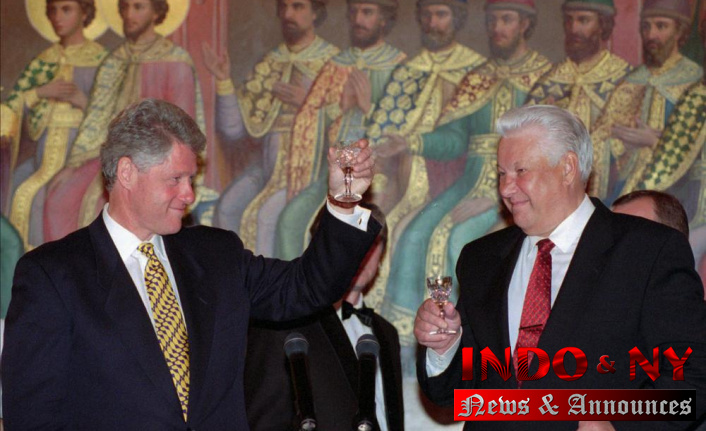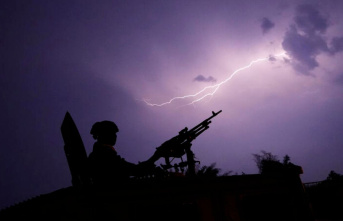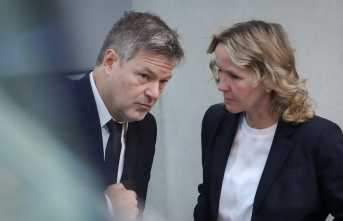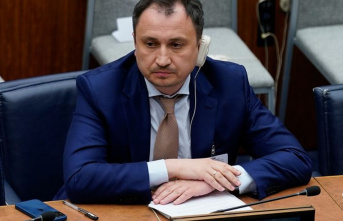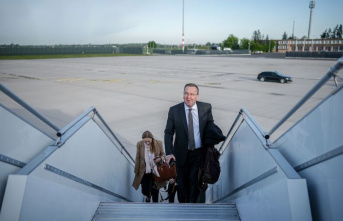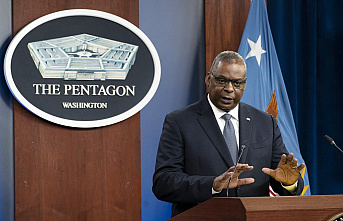Tensions regarding Ukraine are occurring amid a new low of relations between Russia NATO. Relations once so warm, President Vladimir Putin even suggested that his country might join the military alliance.
Take a look at Russia-NATO relations:
COLD WAR AND COMMUNISM’S COLLAPSE
The Cold War saw the Soviet Union and its Warsaw Pact allies from Central and Eastern Europe locked in a conflict with NATO for decades.
This confrontation was eased by Soviet leader Mikhail Gorbachev in the 1980s. He worked to reform the Soviet Union, and encouraged democratic reforms within the East bloc. Gorbachev did not try to prevent the collapse of communist regimes within those allies and quickly accepted the reunification between East and West Germany following the 1989 fall of Berlin Wall.
Gorbachev was promised by the West that NATO would not expand eastward during talks on German unification. However, he has never recorded those verbal promises.
Boris Yeltsin, Russian President, was too busy addressing the political and economic crises following the 1991 collapse and disintegration of the Soviet Union. He didn't pay much attention to the fact that Poland, Hungary, and the Czech Republic joined NATO as members in 1999.
In the same year, NATO's air war against Serbia, which is now Russia, was the first major rift in the military alliance between Moscow and Moscow since the collapse of the USSR.
PUTIN ENTERS WITH AN EXTRA THAW
Putin succeeded Yeltsin as president in 2000. He quickly worked to improve relations with the West and even tested the ground for Russia's possible membership of NATO.
Recently, Lord George Robertson (NATO's secretary general from 1999 to 2004) recalled that Putin asked him when the alliance would invite Russia. He was then offended when Robertson responded that Moscow would need to apply for membership just like any other candidate.
Later, Putin stated that NATO refused to embrace Russia because it feared the West's power and independence.
Putin explored the possibility of NATO membership and sought to establish closer security and political ties with Washington and its allies.
Putin called George W. Bush the first foreign leader after the terrorist attacks of September 11, 2001. He offered his assistance. Putin quickly welcomed the U.S. military's deployment to former Soviet republics in Central Asia as part of the war on Afghanistan. Putin also moved to close Soviet-era bases in Vietnam and Cuba.
Although Moscow's NATO bid was never realized, Russia and NATO agreed to create a council in 2002 to coordinate policies and work together on combating terrorism.
A CHILL RETURNS
Russia-NATO relations began to worsen after Washington pulled out of a Cold War-era treaty prohibiting defenses against missiles. Moscow considered this a threat to its nuclear deterrent.
Moscow was harshly critical of the 2003 U.S. invasion of Iraq, which strained relations further. Russia grumbled more when Bulgaria, Romania and Slovakia, Slovenia, Slovenia, and the former Soviet republics Estonia, Latvia, and Lithuania joined NATO in 2004.
In 2004, tensions rose between Russia and the West over the Orange Revolution protests that occurred in Ukraine. They forced the cancellation of the fraud-tainted election victory of a Kremlin backed presidential candidate. The Kremlin saw those protests, and the earlier expulsion of a leader in the ex-Soviet republic of Georgia, as Western-inspire meddling in Russia's backyard.
In 2007, Putin delivered a critical speech at a Munich security conference. He said that Washington had "overstepped its national borders" and called NATO's eastward expansion "a serious provocation."
RUSSIA-GEORGIA WORRIES
Russia protested vehemently when NATO offered membership to Ukraine, Georgia, and Moldova at a summit in Bucharest (Romania) in April 2008. It considered it a blow to its vital security interest.
In a five-day conflict that broke out when the South Caucasus nation tried to reclaim control of the Moscow-backed separatist state of South Ossetia, Russia defeated Georgia four months later.
Russia recognized South Ossetia quickly and Abkhazia as independent nations, and strengthened its military presence there.
UKRAINIAN CONFLICT BRINGS MOOVES AND COUNTERMOVES
The 2014 mass protests in Ukraine saw President Viktor Yanukovych, a Kremlin-friendly Ukrainian politician, thrown out of power after he abandoned an agreement with Europe and decided to forge closer ties with Moscow.
Russia responded by annexeing Ukraine's Crimean Peninsula to its territory and supporting separatist rebels in eastern Ukraine’s industrial heartland known as the Donbas. Over 14,000 people have been killed in the conflict now in its eighth anniversary. There has been no political settlement. Moscow denies any involvement and says any Russians who were involved in fighting are volunteers for the separatists.
The U.S. and its allies imposed sanctions on Moscow and NATO stopped all cooperation with Moscow. They also bolstered their forces in Russia. These drills and deployments close to Russia's borders were condemned by the Kremlin as a security risk.
After NATO withdrew accreditation of eight Russian officials to its Brussels headquarters, NATO suspended Russia's mission at NATO in October. This was due to their alleged links to Russian intelligence.
Tensions rose last month due to the Russian troop buildup in Ukraine. Putin denied any intention to attack Ukraine, but he sought a Western guarantee that NATO would not include Ukraine in the alliance or deploy its troops there. This was a move he called a "red line for Moscow".
Last week, Joe Biden, the U.S. president, warned Putin about "severe consequences" for if Russia invades Ukraine in a video conference. However, he promised to hold talks to address Russian concerns.
Next steps for NATO, Russia
NATO's credibility is dependent on Article 5, its common defense guarantee. This Article 5 refers to an attack on any member as an attack on all. It also states that it will offer membership to any European country which can contribute to security in Europe or North America. Both Georgia and Ukraine have unresolved territorial conflicts, so bringing them in would force all 30 NATO member countries to support their defense.
Russia demands that the West make a legal commitment not to deploy weapons and forces to Ukraine. Last week, the Russian Foreign Ministry demanded that NATO retract its 2008 promise to Georgia and Ukraine as NATO members.
Russia's demands were rejected by the U.S. and NATO allies. Last week, NATO Secretary-General Jens Stoltenberg stated that NATO's relationship to Ukraine will be determined by the NATO allies (30 and Ukraine).
NATO's argument was countered by Putin who stated that Ukraine has the right to make its own security arrangements but they shouldn't be threatening Russia.
Putin stated that every country has the right to decide the best way to ensure its security. However, it must not infringe upon the security interests or undermine the security of other countries. "Security should be universal and cover all."

